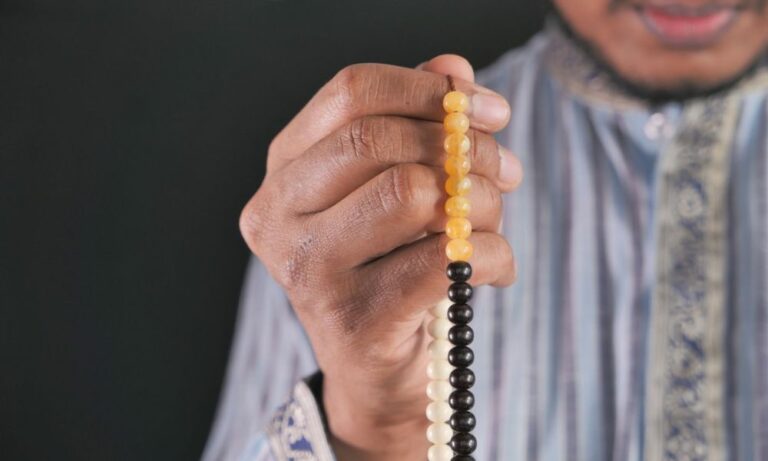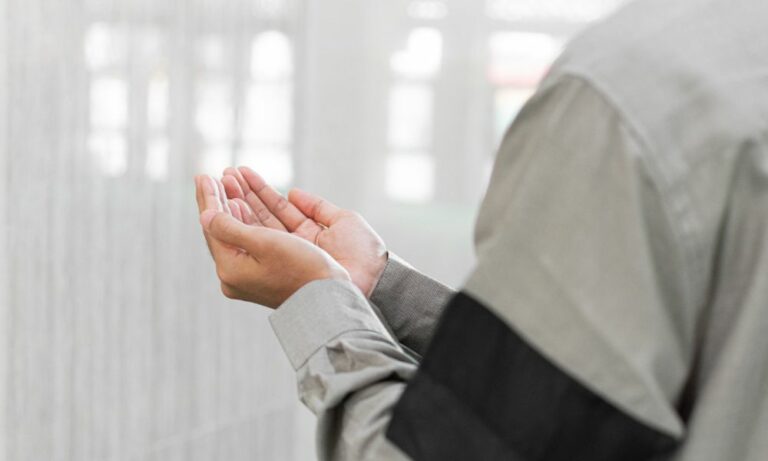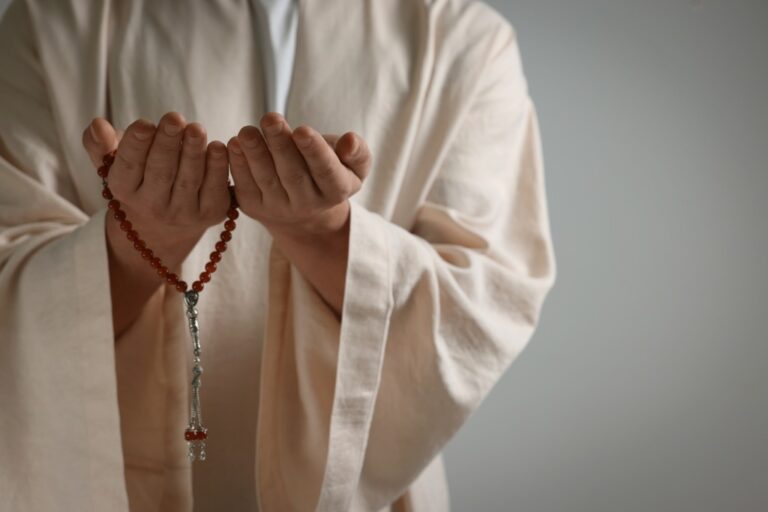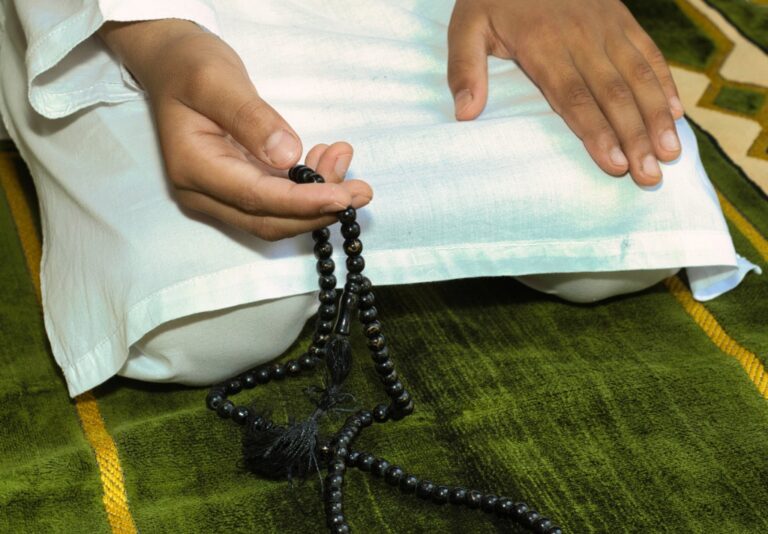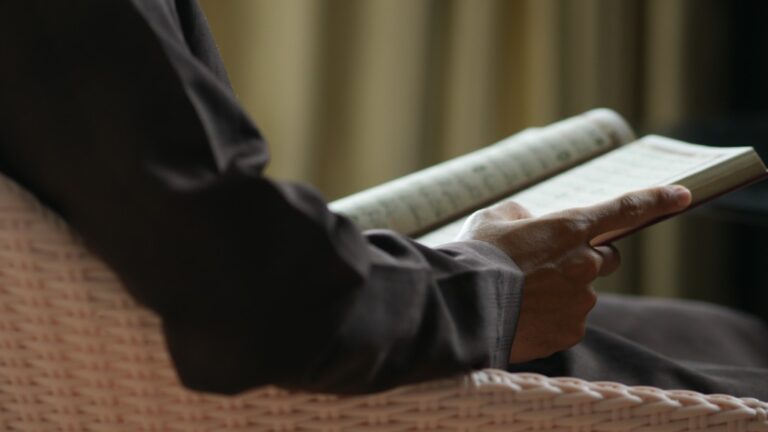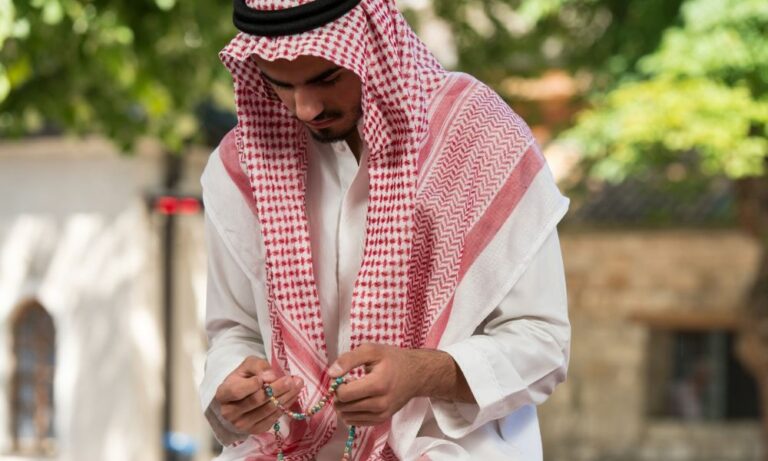Dua For Sneezing (What To Say and How To Respond)
Are you curious about the Islamic customs that surround sneezing? Sneezing holds special significance in Islam, with Dua being exchanged upon hearing one. This article delves into understanding these Duas: what to say when we sneeze and how to respond if someone else does.
Stick around for an enriching exploration of faith, manners, and cultural insight!
The Importance of Dua when Sneezing in Islam
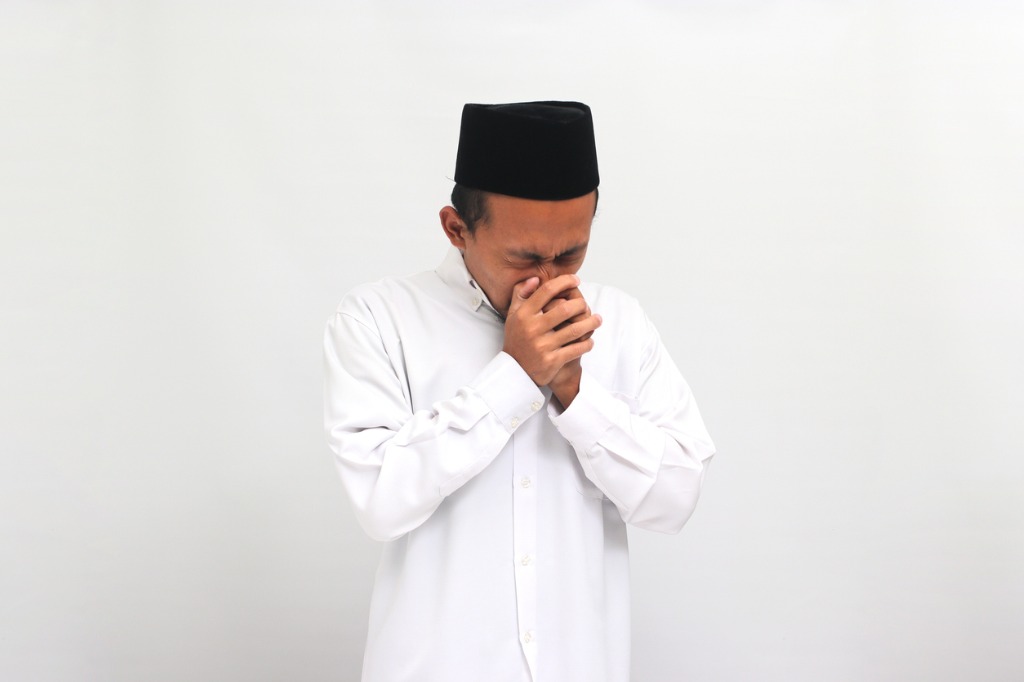

Sneezing is a natural occurrence with special significance in Islam. The religion values etiquette and highly values specific responses, even when it comes to acts as simple as sneezing.
Muslims recognize the beauty of turning even the most insignificant act into an opportunity to seek Allah SWT’s Mercy and guidance.
The significance of performing Dua after sneezing is deeply rooted in Islamic teachings. It was widely practiced among Muslims because Prophet Muhammad PBUH had established it.
Practicing these simple yet powerful Duas represents humility before Allah SWT – acknowledging Him as our sole provider who grants life-sustaining abilities such as breathing – transforming something ordinary, such as a sneeze, into an extraordinary opportunity to receive blessings from Almighty!
What to Say When You Sneeze


When you sneeze, say “Alhamdulillah” (All praise and thanks are to Allah) as a Dua. It confirms the believer’s gratitude and reverence for Allah SWT, even amid insignificant deeds or occurrences.
The Dua for the sneezer
Prophet Muhammad PBUH has said, “The sneeze is from Allah SWT, and the yawn is from Al Shaitan.”
In Islam, It is customary to recite “Alhamdulillah,” which translates to “All praise and thanks are due to Allah,” after sneezing.
The recitation of this Dua honors the noble tradition passed down by Prophet Muhammad PBUH. Resonating with faith, Muslims worldwide practice this religious etiquette daily as an integral part of their way of life.
The underlying belief is that every action has the potential for worship and spiritual growth if performed mindfully—an idea beautifully embodied in acknowledging God’s blessings after sneezing by reciting “Alhamdulillah.”
How to Respond When Someone Else Sneezes
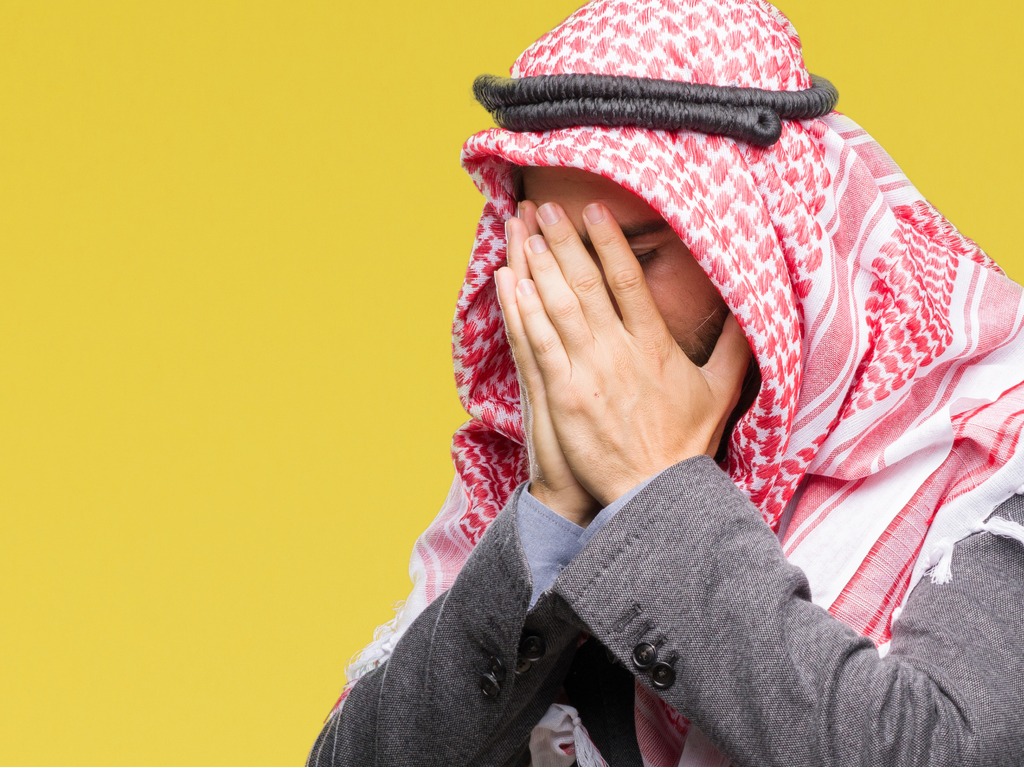

When someone sneezes, you should respond by saying “Yarhamuk Allah,” which means “May Allah have mercy upon you.”
This virtuous reaction is deeply rooted in Islamic etiquette and represents well-wishes for those who sneezed. A few hadiths mention this practice, demonstrating its authenticity and historical significance in the Muslim world.
Surprisingly, such a simple utterance carries powerful sentiments of compassion and unity among Muslims all over the world when they interact in these small but profoundly significant exchanges daily.
Responding to a fellow believer’s prayerful invocation, one should respond with “Yahdikumul-lah wa Yuslih balakum,” conveying wishes that Allah SWT bestows His Divine Guidance upon them and set all their affairs right.
The Hadith To Summarize it All
“ إِذَا عَطَسَ أَحَدُكُمْ فَلْيَقُلِ الْحَمْدُ لِلَّهِ. وَلْيَقُلْ لَهُ أَخُوهُ أَوْ صَاحِبُهُ يَرْحَمُكَ اللَّهُ. فَإِذَا قَالَ لَهُ يَرْحَمُكَ اللَّهُ. فَلْيَقُلْ يَهْدِيكُمُ اللَّهُ وَيُصْلِحُ بَالَكُمْ ”.
” If anyone of you sneezes, he should say ‘Al-Hamduli l-lah’ (Praise be to Allah ), and his (Muslim) brother or companion should say to him, ‘Yar-hamuka-l-lah’ (May Allah bestow his Mercy on you). When the latter says ‘Yar-hamuka-llah”, the former should say, ‘Yahdikumul-lah wa Yuslih balakum’ (May Allah give you guidance and improve your condition). Sahih al-Bukhari 6224
Islamic Etiquettes of Sneezing
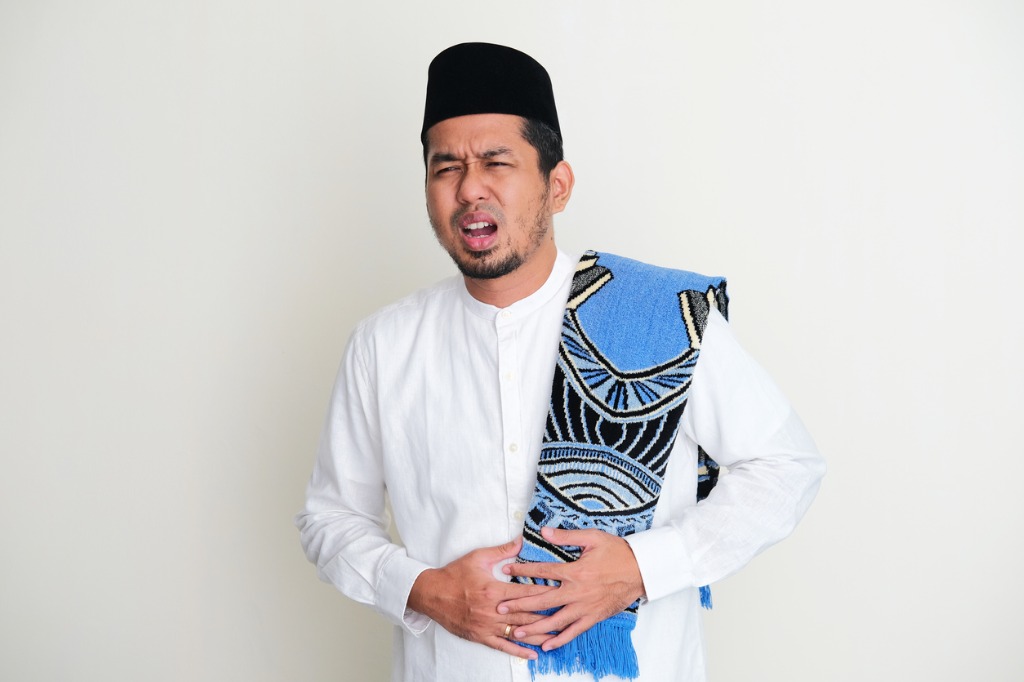

Covering your mouth area
Sneezing is a natural yet forceful action that can spread germs far and wide if not properly contained. Covering your mouth area while sneezing upholds Islam’s unwavering commitment to cleanliness and respect for the well-being of others.
It is a courtesy meant to protect those around you from potentially harmful particles.
Practicing proper hygiene during sneezing is consistent with the Prophet’s teachings. When you want to sneeze, shield others by clasping your hand or a cloth over your mouth.
Narrated Abu Hurairah:
That when the Prophet (ﷺ) would sneeze, he would cover his face with his hand or with his garment and muffle the sound with it. Jami` at-Tirmidhi 2745
Thus, it complements the recitation of ‘Alhamdulillah,’ promoting spiritual mindfulness alongside physical cleanliness in every aspect of life.
The significance of saying ‘Alhamdulillah’
In Islam, saying ‘Alhamdulillah’ after sneezing is very important. This phrase, which means “All praise and thanks are due to Allah,” is a way of thanking Allah SWT for the ability to sneeze and for the individual’s overall well-being.
Muslims affirm their faith in Allah SWT’s power and Mercy in all aspects of life by saying this phrase. It is a constant reminder to acknowledge and appreciate the blessings bestowed upon us by our Creator.
Saying ‘Alhamdulillah’ not only shows submission to Allah SWT, but it also promotes mindfulness, humility, and gratitude in everyday interactions with others.
Teaching Children the Etiquettes for Sneezing
It is one of the shortest phrases, so you can easily teach it to your children. When your child sneezes, remind him to say Alhudulillah and tell them to cover their mouth area while sneezing. Tell your child how this phrase makes Allah SWT happy, and most importantly, whenever your child does this, appreciate them so that they feel motivated.
Conclusion
Understanding how to respond when someone else sneezes and learning the Dua for sneezing is an integral part of Islamic etiquette. When we sneeze, we should say “Alhamdulillah,” the person who hears it should react with “Yarhamukallah.” Then, the one who sneezes should reply as “Yahdikumul-lah wa Yuslih balakum”. We are following the teachings of Prophet Muhammad (PBUH) and showing gratitude to Allah SWT.
Teaching these Duas to our children at a young age helps to instill good manners and faith in their hearts. Let us try to incorporate this lovely Sunnah into our daily lives and encourage others to do the same.
دعاء العطاس (ماذا يقول وكيف يرد)
هل أنت مهتم بالعادات الإسلامية المتعلقة بالعطاس؟ للعطس أهمية خاصة في الإسلام، حيث يتم تبادل الدعاء عند سماعه. تتعمق هذه المقالة في فهم هذه الأدعية: ماذا نقول عندما نعطس وكيف نرد إذا فعل ذلك شخص آخر.
استمر في استكشاف إثراء الإيمان والأخلاق والرؤية الثقافية!
أهمية الدعاء عند العطاس في الإسلام

العطاس أمر طبيعي وله أهمية خاصة في الإسلام. يقدّر الدين آداب السلوك ويقدر بشدة الاستجابات المحددة، حتى عندما يتعلق الأمر بأفعال بسيطة مثل العطس.
يدرك المسلمون جمال تحويل حتى أصغر الأعمال إلى فرصة لطلب رحمة الله سبحانه وتعالى وإرشاده.
إن أهمية الدعاء بعد العطاس متجذرة بعمق في التعاليم الإسلامية. وكانت تمارس على نطاق واسع بين المسلمين لأن النبي محمد صلى الله عليه وسلم أسسها.
ممارسة هذه الأدعية البسيطة والقوية تمثل التواضع أمام الله سبحانه وتعالى - الاعتراف به باعتباره المعيل الوحيد لنا الذي يمنحنا قدرات الحفاظ على الحياة مثل التنفس - وتحويل شيء عادي، مثل العطس، إلى إلى فرصة غير عادية لنيل البركات من الله عز وجل!
ماذا تقول عندما تعطس


عندما تعطس قل "الحمد لله" (الحمد لله) كدعاء. يؤكد شكر المؤمن وخشوعه لله سبحانه وتعالى، حتى في تافهة الأفعال أو الأحداث.
دعاء العاطس
قال النبي محمد صلى الله عليه وسلم: "العطاس من الله تعالى، والتثاؤب من الشيطان".
من المعتاد في الإسلام قراءة "الحمد لله" والتي تترجم "الحمد لله" بعد العطاس.
تلاوة هذا الدعاء تكرم التقليد النبيل الذي ورث عن النبي محمد صلى الله عليه وسلم. ومن خلال صدى الإيمان، يمارس المسلمون في جميع أنحاء العالم هذه الآداب الدينية يوميًا كجزء لا يتجزأ من أسلوب حياتهم.
الاعتقاد الأساسي هو أن كل عمل لديه القدرة على العبادة والنمو الروحي إذا تم القيام به بوعي - وهي فكرة تتجسد بشكل جميل في الاعتراف بنعم الله بعد العطس من خلال تلاوة "الحمد لله".
ص>كيفية الرد عندما يعطس شخص آخر


عندما يعطس شخص يجب أن تقول "يرحمك الله" والتي تعني "رحمك الله".
رد الفعل الفاضل هذا متجذر بعمق في الآداب الإسلامية ويمثل التمنيات الطيبة لمن يعطس. وتشير بعض الأحاديث إلى هذه الممارسة، مما يدل على صحتها وأهميتها التاريخية في العالم الإسلامي.
من المثير للدهشة أن مثل هذا الكلام البسيط يحمل مشاعر قوية من التعاطف والوحدة بين المسلمين في جميع أنحاء العالم عندما يتفاعلون في هذه التبادلات الصغيرة ولكن ذات الأهمية العميقة يوميًا.
عند الرد على دعاء أحد المؤمنين، ينبغي للمرء أن يرد بـ "يشهد الله ويصلح بلاكم"، معبرًا عن التمنيات بأن ينعم الله سبحانه وتعالى بالهداية الإلهية. عليهم وأصلح شأنهم كله.
الحديث المختصر
" إِذَا عَطَسَ أَحَدُكُمْ فَلْيَقُلِ الْحَمْدُ لِلَّهِ. وَلْيَقُلْ لَهُ أَخُوهُ أَوْ صَاحِبُهُ يَرْحَمُكَ اللَّهُ. فَإِذَا قَال لَهُ يَرْحَمُكَ اللَّهُ. ْ يَهْدِيكُمُ اللَّهُ وَيُصْلِحُ بَالَكُمْ " .
" إذا عطس أحدكم فليقل: الحمد لله، وليقل له أخوه أو صاحبه "يرحمك الله" (يرحمك الله). وعندما يقول الأخير "يرحم الله" فيقول الأول: "يهديكم الله ويصلح بكم". التوجيه وتحسين حالتك). صحيح البخاري 6224
آداب العطاس الإسلامية


تغطية منطقة الفم
العطس هو عمل طبيعي ولكنه قوي يمكن أن ينشر الجراثيم على نطاق واسع إذا لم يتم احتواؤه بشكل صحيح. إن تغطية منطقة الفم أثناء العطس تدعم التزام الإسلام الثابت بالنظافة واحترام رفاهية الآخرين.
إنها مجاملة تهدف إلى حماية من حولك من الجزيئات الضارة المحتملة.
ممارسة النظافة المناسبة أثناء العطاس تتفق مع تعاليم النبي صلى الله عليه وسلم. عندما تريد العطس، قم بحماية الآخرين من خلال وضع يدك أو قطعة قماش على فمك.
عن أبي هريرة:
أن النبي صلى الله عليه وسلم كان إذا عطس غطى وجهه بيده أو بثوبه وكتم الصوت به هو - هي. جامع الترمذي 2745
وهكذا فهي مكملة لتلاوة الحمد لله، مما يعزز الوعي الروحي إلى جانب النظافة الجسدية في كل جانب من جوانب الحياة.
أهمية قول الحمد لله
في الإسلام، قول "الحمد لله" بعد العطاس أمر مهم جدًا. هذه العبارة التي تعني "الحمد لله والشكر" هي طريقة لشكر الله سبحانه وتعالى على القدرة على العطاس وعلى صحة الفرد بشكل عام.
يؤكد المسلمون إيمانهم بقدرة الله سبحانه وتعالى ورحمته في جميع جوانب الحياة من خلال قول هذه العبارة. إنه تذكير دائم للاعتراف وتقدير البركات التي أنعم بها علينا خالقنا.
إن قول "الحمد لله" لا يظهر الخضوع لله سبحانه وتعالى فحسب، بل إنه يعزز أيضًا الوعي والتواضع والامتنان في التفاعلات اليومية مع الآخرين.
تعليم الأطفال آداب العطاس
وهي من أقصر العبارات، لذا يمكنك تعليمها لأطفالك بسهولة. عندما يعطس طفلك، ذكّره أن يقول الحمد لله واطلب منه تغطية منطقة فمه أثناء العطس. أخبر طفلك كيف تسعد هذه العبارة الله سبحانه وتعالى، والأهم من ذلك، عندما يفعل طفلك ذلك، قدّره حتى يشعر بالتحفيز.
الاستنتاج
إن فهم كيفية الرد عندما يعطس شخص آخر وتعلم دعاء العطس هو جزء لا يتجزأ من الآداب الإسلامية. عندما نعطس يجب أن نقول "الحمد لله"، وعلى من يسمعها أن يتفاعل بـ "يرحم الله". ثم يقول الذي عطس: "يشهد الله ويصلح بلاكم". نحن نتبع تعاليم النبي محمد (صلى الله عليه وسلم) ونشكر الله سبحانه وتعالى.
إن تعليم هذه الأدعية لأطفالنا في الصغر يساعد على غرس الأخلاق الحميدة والإيمان في قلوبهم. فلنحاول دمج هذه السنة الجميلة في حياتنا اليومية ونشجع الآخرين على فعل الشيء نفسه.


